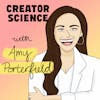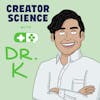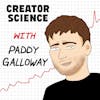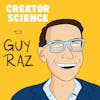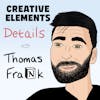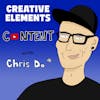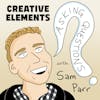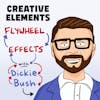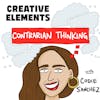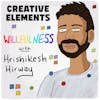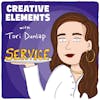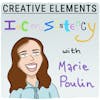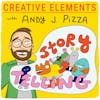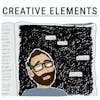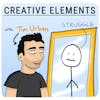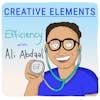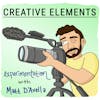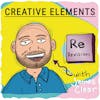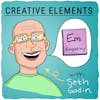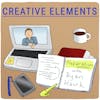
#61: Ryan Hawk – How a top podcaster approaches outreach, interviewing, and prioritizing new projects
Play EpisodeRyan Hawk is a keynote speaker and the host of the Learning Leader Show.
Ryan Hawk is a keynote speaker and the host of the Learning Leader Show. The show has been listened to by millions of people in more than 150 countries, and Forbes called it, “the most dynamic leadership podcast around.”
He is also the author of Welcome to Management: How To Grow From Top Performer To Excellent Leader.
Previous to the Learning Leader Show, Ryan worked in corporate America for 12 years. I started as an entry-level telephonic sales rep and worked my way to manager, director, and ultimately VP of sales for a multi-billion dollar company.
Ryan has delivered hundreds of keynote speeches all over the world. He’s worked with Fortune 500 companies, conference organizers, and leaders in the academic world. He has a passion for speaking on stage and immediately impacting the actions of each attendee.
In this episode, we talk about leaving his sales job to become a creator, compare our methods of cold outreach, the interviews that still make us nervous, and why his commitment to Preparation has helped him stand out above the noise.
Visit The Learning Leader website
Subscribe to the Learning Leader Show
Full transcript and show notes
***
LISTENER SUPPORT
Join our community on Facebook
Support this show through Buy Me A Coffee
***
SPONSORS
Try Podia and save 15% for life as a Creative Elements listener
Start your free trial of SavvyCal and get your first month free using promo code ELEMENTS
Get a free month of Blinkist Premium
Try Grammarly for free and save 20% on Grammarly Premium
***
ABOUT JAY CLOUSE
Subscribe to my weekly newsletter
Follow Jay Clouse on Instagram
Enroll in my course on podcasting, Podcast Like The Pros
***
PODGLOMERATE NETWORK
This show is a part of the Podglomerate network, a company that produces, distributes, and monetizes podcasts. We encourage you to visit the website and sign up for our newsletter for more information about our shows, launches, and events. For more information on how The Podglomerate treats data, please see our Privacy Policy.
Since you're listening to Creative Elements, we'd like to suggest you also try other Podglomerate shows surrounding entrepreneurship, business, and careers like Rocketship.fm and Freelance to Founder.
Learn more about your ad choices. Visit megaphone.fm/adchoices
Ryan Hawk 0:00
I know what the main thing is. The home base, the foundation of everything is my podcast. Everything that I've gotten to do is because of that.
Jay Clouse 0:11
Welcome to Creative Elements, a show where we talk to your favorite creators and learn what it takes to make a living from your art and creativity. I'm your host, Jay Clouse. Let's start the show.
Hello, welcome back to another episode of Creative Elements. It's hard to believe that we've passed 60 episodes of this show already. So a big thanks goes to you for continuing to listen for sharing the show and helping it reach new listeners each and every week. And a special shout out to Kelliente235 who wrote a review on Apple podcast titled I love this show so much. They wrote quote, Jay Clouse Is that weird combination of delightful and inquisitive and under the radar brilliant that you want in a podcast host. Editing is onpoint, commentary is insightful, guests are great. One of my all time favorites and quote, I've never been called brilliant before. So thank you, Kelliente235. If you haven't left a rating or review for Creative Elements on Apple podcasts, please consider doing so. We are just below 205 star ratings and you can make a difference. I may even read it here on this show. Well, speaking of getting listeners engaged in your podcast. Today, I'm speaking with a friend of mine named Ryan Hawk. And we met at a live recording of his podcast, The Learning Leader Show. On The Learning Leader Show show Ryan hosts deep conversations with the world's most thoughtful leaders to share their life stories in leadership wisdom. He speaks with CEOs, Special Force operators, entrepreneurs, bestselling authors, professional athletes, and more. And it was January 2020, when he interviewed Jenny Britton Bauer, the creator of Jenny's Splendid Ice Creams live here in Columbus, Ohio.
Ryan Hawk 2:18
So welcome to a live edition of The Learning Leader Show. I am so grateful that you've chosen to invest your time with us. I would say I feel extremely lucky in the fact of who our guest is tonight. Jenny and I actually were talking yesterday on the phone. And to hear her excitement and the stories. I had to stop her and say, we should just we got to get off the phone because you're too good.
Jay Clouse 2:46
In some ways, January 2020. Seems like a lifetime ago. It was probably one of the last live events that I attended before the pandemic. But I remember it clearly because Ryan sent me a personal invitation to this event. Ryan is a really well known and well respected podcaster. And so I was honestly surprised and flattered to get this type of personal invitation. And I had missed a previous live recording that he did here with James Clear, so I made it a priority to get to this one. The event doubled as a launch event for his book. Welcome to Management. In the book, Ryan provides practical actionable advice to help new managers build and lead teams in the face of daunting unanticipated challenges. He presents a three part framework outlining best practices distilled from interviews with more than 300 of the most forward thinking leaders in the world, as well as his own professional experience transitioning from individual producer to new leader. Ryan has built quite a name for himself in the world of leadership development. Not only does he have the podcast and the book, but he's a keynote speaker as well.
Ryan Hawk 3:51
When I deliver a keynote speech, I have three primary goals. First is to educate to share experiences so that you learn something new to be entertaining, fun, and lightning by sharing great stories. Most importantly, I hope it inspires you to act to make a change.
Jay Clouse 4:15
But this all started with The Learning Leader Show, which today has more than 400 episodes millions of downloads. It was called the most dynamic leadership podcast around by Forbes. Ryan's always had a knack for landing big guests like Simon Sinek, Scott Galloway, Ryan Holiday, Kelly McGonigal and more. And it all stems from a dinner that he had in 2015.
Ryan Hawk 4:39
I had this dinner set up with Todd Wagner and Todd Wagner is Mark Cuban's business partner. They started broadcast.com together and we sat at the bar for a bit and had a long conversation as as you could imagine. I did probably what you would do if you came in this situation, just hammered him with questions just peppered him over and over. It is funny, you know, I was I finished my MBA and I consider going back to school because the company reimburse me for that. I thought, well, it's a waste of money if I don't use it. And after that dinner with Todd, I'm flying home from it. And I thought, Wait a second, why not? Instead of going back to formal education? What if I created my own form of a leadership PhD program, where I get to choose all of the professors? And I'll have long form one on one conversations? Is it really my favorite thing to do to go deep quickly with another person like you and I have done? And how about I tried to do it in public.
Jay Clouse 5:38
So in this episode, Ryan and I talked about leaving his full time sales job to become a creator. We compare our methods of cold outreach, we talked about the interviews that still make us nervous, and why his commitment to preparation has helped him stand out above the noise. I'd love to hear your thoughts on this episode. As you listen, you can find me on Twitter or Instagram @JayClouse, take a screenshot tag me, and let me know that you're listening. But now, let's talk with Ryan.
Ryan Hawk 6:11
Jay first, I have to say I am, I'm pumped to be here because I'm a fan of you, as you know, in your shell, and over sit you sitting sitting in the front row of a live show that I did with Jenny Britton Bauer hanging out and paying close attention and asking questions at the end, dude, it was so good to be here with you. So I would say if you if I go back to that time, this is before podcasts were as big but there were certainly podcasts, you don't listen to Joe Rogan and Bill Simmons of the world. And so I recorded 22 episodes prior to launch. And I looked at the algorithms of iTunes, that's what it was called at the time and, and then prepped and launched, you know, three a week for those first eight weeks when New and Noteworthy was a thing and all that was able to land up up at the top of that. So really, just a lot went into it. But it started with just following my curiosity Jay, I would say and, and thinking about how I could create my own form of a school. And I thought doing it in public was a little scary, but also could potentially be an opportunity for others to learn along with me. And that's been, I'd say, the coolest parts about about it is that it's, you know, as you know, from a community building perspective, it's built this neat community of people who are, who are wanting to be learning leaders as well.
Jay Clouse 7:22
Man, it's interesting that you say you recorded 22 episodes before launch, because I just listened to Episode 23, where you're talking with your younger brother about the show, and why you launch it your holes.
AJ Hawk 7:33
What, like, what would your ultimate goal be with the podcast?
Ryan Hawk 7:37
I set goals. You know, I wrote them down when I started. And really, I'll tell you the the few initial goals one, I did want to be the number one show in iTunes New and Noteworthy. And I knew the biggest way, the quickest way to get there would be to create great content, people only listen to shows if the content is great. So that goal is achieved, and it's still still sitting around hovering around that spot. I also set a goal that I wanted to have 100 people contact me and say that my show has either helps them or inspired them in some way to do something.
Jay Clouse 8:13
Recording 22 podcast episodes is such a commitment, especially before you get any form of public feedback on it. So one, I want to zoom in a little bit more to how you thought about that commitment. And you know how you knew that might pay off or how you're thinking about? Well, if this goes really well, we'll hit new and noteworthy. If it doesn't, I'm out 22 episodes were the time like how were you thinking about that commitment?
Ryan Hawk 8:39
Well, so I as I mentioned, I studied and read about, you know, what gave me the best odds of landing there. And that, you know, I kind of didn't hesitate to share that that was a goal. But it was because I wanted the show to grow. I had zero platform, I had no social media following. I had no email list. I had nobody who ever heard of me or anything that I had done other than, than playing college football, which gave nothing to a podcast. So I viewed it as I'm committed to doing this. And then as I got started recording and I talked to Jayson Gaynard, and our mutual friend Jason zoek was one of those first ones and a few other really impressive people that were so kind and gracious because they were recording for a podcast that literally didn't exist. There was nowhere to find it. There was no website, there was nothing, and they just still were giving of their time. So I tried to honor that by being overly prepared. And I thought you know, worst if it doesn't work out, at least I've had these really, really cool long form conversations with interesting people who are great storytellers. But quite frankly Jay, I never intended like even if it didn't get picked up or nobody listened. I didn't intend to ever slow down I was gonna keep going. Even if nobody listened. I would say the fact as you know how this feels when people do start listening and you do start getting feedback and you do see that it's growing. That is some some powerful fuel to keep at it, especially when you're you get the emails that it's impacted you or that your show is impacted somebody else. That's, that's a really, I think, for me at least the important aspect to it to say, hey, it's, you know, I'm tired or I got a lot going on. Well, you know, your show impacts people. So let's let's try to work hard to prepare to so that you can continue to do that. And that's, that's really how I viewed it from the from the beginning.
Jay Clouse 10:34
I was gonna bring up your guest list because in your first I think nine episodes you had Jordan Harbinger, Pat Flynn, Jason Zook, actually very similar guest list. But way earlier, yeah. What did what did that approach look like? How did you get ahold of these people to get them to come on a show like you said, that didn't exist.
Ryan Hawk 10:52
One of the I think good things about my first job I had so I was a new business, telephonic sales rep for LexisNexis, sat in a cubicle, smile and dial, low base salary, but uncapped commission, so if you crush it, you got paid. If you didn't, you got fired. And what that taught me was to deal with rejection, it taught me how to learn some email marketing, it taught me how to write cold emails, it taught me how to make cold calls. It taught me not to sweat if people ignored you, if people said no, if people told you to stop. So what my process was, I just use kind of everything I learned from that first job and try to craft compelling cold emails, which are really hard at the beginning. Because, you know, there's usually some sort of credibility statement within your cold emails. And I didn't have any. My credibility was, I'm curious, I'll be prepared, right. But it wasn't like my shows on Forbes or whatever. Or I have a book or anything like that. There's no real credibility. And, and unfortunately, though, enough, people said yes, I mean, far, far more people either ignored me or said no, then said yes. But enough said yes, that it kind of kept inspiring me to keep at it and keep emailing and keep finding people. And I still did that to this day. I mean, I still send cold emails multiple times per week, in order to reach out to find guests on my show each show even though it's a little bit easier now because I have good relationships with a number of PR teams, who are who are hired by, you know, authors, leaders, people like that. So yeah, it was really helpful. Even though at the time of having that job. I didn't necessarily love every aspect of it. But I did learn some necessary skills to get a hold of people.
Jay Clouse 12:29
I love this. I love when the topic of sales comes up on this show. But I want to zoom in specifically into the idea of a good cold pitch, whether it's an email or a phone call, because I've also seen the power of this.
Ryan Hawk 12:41
Yeah.
Jay Clouse 12:41
And I'd love to hear how you think about your, your cold emails to from today, or even earlier, whatever you think might be most relevant.
Ryan Hawk 12:49
I want to hear yours too, though. Are you cool to share yours too?
Jay Clouse 12:51
Yeah, absolutely.
Ryan Hawk 12:52
Okay. So I think for me, it has to be the one word that I think is really important, with an outreach to anybody, whether you're asking them for something wherever is specificity, because you get called pitched a lot, I'm sure and I do too. And the problem is, is cut, copy and paste and they send it to a million people, right, spray and pray. Yeah, and you, you can't do that. So when when reaching out cold, it's very specific praise. So if you're reaching out to Adam Grant don't say I love give and take or I love originals, actually point pick a specific story or an aspect about give and take or originals that you really like, and tell them that that has changed your life, it only if that's true, right, you can't Don't lie. So really specific praise is how I would start then, if possible, when I try to find this, if at all possible, I try to find some sort of uncommon commonality that we share and Adam Grant's case, he went to University of Michigan for I believe graduate school at the same time that I played a game in that stadium and so I told him you may have been at a game that I was able to tumble into the end score, right so this that's that's a crazy uncommon commonality I use it is because it happens to be true. And then a very specific direct ask after I give some sort of credibility. So specific praise, uncommon commonality credibility on my show, which by the way, as I mentioned, did not have any at the beginning but now I do right so whether it's some of them are interested in how many people are listening or things you've accomplished or maybe some write ups or whatever some some credibility right? The the chill Dini stuff that he writes about an influence and then just say, direct ask and then get out. And I've tried to keep it as obviously he's like, as short as possible so it doesn't clog up their phone, which is where they're probably looking. And then there's a direct ask, and you know, I thank them for their consideration. And then I'm done. And, you know, my rate has gone up as we've gone as I think the credibility portion of the email has gotten better. That has been more helpful, but that's what I tried to do. And, you know, I get denied and ignored all the time still. But my hit rate, I think is a little bit higher now than it was the beginning.
Jay Clouse 15:09
Can you give me like a benchmark?
Ryan Hawk 15:11
You know, it's funny up. I've gotten like over for like the past couple of weeks, which is funny is very normal, like over 10, probably recently. But that means like it back to my set selling days, that just means like, that's it's one step closer to getting a yes. So it's like, just keep going. But for the most part, I'm probably like in the 50-50 range on a normal time, despite the fact that I'm on a current streak that's not not quite that good. But I think it's also like I'm reaching out to, like Oprah Winfrey and Dave Matthews and these types of people that, you know, are a little bit harder to get to, and usually I just get ignored. And but that's just that just goes into the not yet column, because nobody is ever in the no column, even if they actually say no, just you know, not yet. And eventually, you know, I planned to make those happen.
Jay Clouse 16:01
After a quick break, Ryan, and I dig into my approach to cold email outreach, and then we dig into his process for preparing for interviews, right after this. Welcome back to my conversation with Ryan Hawk. Just before the break, Ryan and I were talking about our email strategy for reaching out to podcast guests. Ryan shared his strategy with me, which focused on specific praise, uncommon commonality, credibility, and a direct ask,
Ryan Hawk 16:29
What about you do it? Can I hear? Can you tell me your I know, it's your show. But can you tell me what you're like? How your your formula for it?
Jay Clouse 16:36
Yes. So the subject line, I put in brackets at the front interview request. And then the central line is usually Can we talk about your creative career?
Ryan Hawk 16:45
Ah,
Jay Clouse 16:46
Then the body of the email, my overall rule is that I want it to be within one scroll of your thumb on a mobile phone no longer than that.
Ryan Hawk 16:55
Mm hmm.
Jay Clouse 16:56
So I start also with specificity as far as here's why I'm reaching out to you. And it's usually like some specific relationship I have to their work, and why I think it's interesting. And then I go to the direct ask and say, I would love to interview you on Creative Elements, would you be open for a 45 minute remote interview for the show. And then I have in bold the pitch. And I literally have like a two line pitch about Creative Elements, saying it's a narrative interview style show that's highly produced and on a network. I had a couple of guests that I've talked to talk to Seth Godin, James Clear, Vanessa van Edwards, about how they made a living from their art and creativity. And I'd love to talk to you about the same. I say it's been featured on Pocket Casts, Stitcher, Castbox. Apple Podcasts. And then I say, if you're interested, I'll send you a scheduling link zero pressure or expectation. Thanks for the consideration.
Ryan Hawk 17:53
Hmm. What's your hit rate?
Jay Clouse 17:55
My hit rate's really high. But my problem is I don't send enough outbound.
Ryan Hawk 18:00
Gotcha.
Jay Clouse 18:01
And I also because because my hit rate has always been historically high. I take the rejections or even just like the ignored responses too personally, I'm finding this is literally my biggest limitation right now is that I'm just not making enough asks.
Ryan Hawk 18:14
Gotcha.
Jay Clouse 18:14
It's not even just the guests. I know, I could get two guests I want to get to through other people in my network. But that's an ask in itself, right?
Ryan Hawk 18:22
Yeah. I don't love that if at all possible. You know what I mean? I feel like it happens every once in a while. But it's not my favorite part about this, where if somebody because it's kind of an icky feeling, if all of a sudden you have this great talk with a friend or a buddy, and they're like, hey, by the way, can you get me to Gary Vee or whatever? And and you're like, Oh, this doesn't feel as good as it did 30 minutes ago, you know what I mean? So I'm with you there. I almost rather just keep pounding my head against the wall, sending cold emails, eventually get them then then then kind of go through that. But it's tough, though, man this is, but this is why it's not for everybody. This is why it's hard to consistently produce a high quality show with great people. Because this is a part of the deal. And I think that's in a way, like the heart is what makes it good. I'm sure we've heard that before and movies and things like that. But I agree, I kind of liked that aspect of, of putting together a show and surround yourself with these incredible people to be guests on the show because it's really hard.
Jay Clouse 19:28
It's also interesting that people I talked to either do a ton of interviews or no interviews, there's like nothing in the middle. So they're either like super critical of the opportunities that are coming out because I've done a ton or they're like, why would I do an interview at all? So it's it's an interesting kind of game there.
Ryan Hawk 19:48
Do you have fave? Do you have favorites?
Jay Clouse 19:50
Of who I've talked to you?
Ryan Hawk 19:51
Yeah.
Jay Clouse 19:51
Definitely James, his episode was a favorite for sure.
Ryan Hawk 19:56
It was an awesome episode. I listened to that a couple times. Actually. Really good.
Jay Clouse 19:59
I really liked Dan Andrews talking with him about community because I think he's one of like the originals when it comes to building community online. I really enjoyed my conversation with Vanessa van Edwards too. Jordan Harbinger's conversation was really fun, even though I got so sidetracked talking about relationships, I didn't even talk about his career at all. But yeah, those are some of my favorites. When you're, when you're doing your outreach, do you try to go straight to the person and find like their personal inbox, or you work through the more traditional channel, if they're a bigger name.
Ryan Hawk 20:32
I'd rather go straight to them if, if at all possible on goal I'm trying, but sometimes, you know, you look them up, and you see that they're represented by somebody else. And then I'll go that route, too. It's just a series of looking for. That's a big part. Because a lot of questions you get it like in the Q&A of a keynote, they're like, Well, how do you find them? How do you reach out to them? How do you decide? And it's always about just trying to find a way to get in touch with them? And then I know you'd ask this question, but I think that the answer the, how do you decide who I really think a good guest, and I probably should have asked you this before we started recording. But a good guest, to me are the ones who, for my show at least, sustained excellence, they understand why which is should never be assumed that people have an understanding of why they've been good at something. And they're a good storyteller. So they can take and bring those things and bring it to life. That's what I think great audio is like a high level of self awareness and great storytelling, and then hopefully, some practical application, like if you can hit all those, that's good. And not every person, even if they're highly accomplished. Not every person can do that. So I think that's what, that's what I'm really looking for. And then I'm trying to go directly to them as much as possible. It's not always that way. But but I try to, if I can.
Jay Clouse 21:46
How do you prepare for your interviews typically.
Ryan Hawk 21:50
So if they write, written books, I'll do my best to read either the entire books or subkeys, I've already have. And I'm going to reach out to them after the fact. Anything online, I could find, I'll try to read as much as possible, obviously, anything on YouTube I'm looking for. And one of the things I started doing about a year and a half ago is now that I've built up, you know, a solid group of people that I've talked to, I will look for people that we have in common that may be either friends or acquaintances. And I'll reach out to them. And I have one question. And that is, what is something about them that I can't find on the internet. And that doesn't always work. But it can lead to some awesome questions like Shane Snow told me ask ozanne overall, why he gets his movies from Netflix as DVDs instead of streaming? Because it's really weird. And nobody does that. So I did towards the end of the conversation, and it led to this great dialogue about delayed gratification, and like we got into this big rabbit hole that I said, Shane, send me something about Ozon that I cannot find on the internet, because he knows my prep process is to scour and watch and read everything there is about my guest. And he said, Ask him, why does he still watch DVDs instead of Netflix?
Ozan Varol 23:12
So I
Ryan Hawk 23:13
Find online. I did not find online.
Ozan Varol 23:15
Yeah, so I still get DVDs in the mail.
Ryan Hawk 23:18
Really?
Ozan Varol 23:18
Yes, I still do. I might be the only personto do that.
Ryan Hawk 23:21
Does Netflix still do that?
Ozan Varol 23:23
Yeah, Netflix still does that.
Ryan Hawk 23:24
They do?
Ozan Varol 23:25
They still send DVDs in the mail. Here's why I do it. There's something about delaying gratification that brings people happiness. So if I'm just you know, if my wife and I are just sitting on the couch, and like, we can pick whatever movie, we sometimes do that, by the way, but I find such strange pleasure in like finding a movie, adding it to my Netflix queue. And then waiting for like, two days for the movie to arrive. And then like seeing that like a red envelope sitting in our mailbox. Honestly, it's sometimes more joyous than the movie itself. That anticipation of like the the very like, purposeful way of like, I'm going to watch this movie, I'm going to put it on my queue, it's going to arrive in my mailbox, I'm going to open it like a Christmas present, and then put it in. I just get I know it's strange, but I get so much satisfaction from it.
Ryan Hawk 24:20
And so that's a question I like to ask from a different point of view from a research perspective. And I would say one other thing, Jay that I do that I think is I don't seek novel to sum is if they've written a book, I always go to the acknowledgement section first, and I look for somebody that they love. And I want to bring up a person they love, usually towards the beginning of the conversation so that especially if I'm with somebody who is interviewed a lot, I want this to feel different. I want this to feel personal. I want to start with them thinking like oh I love my wife or I love my husband or I love my mom and dad or my kids or this this special coach. That I had like, Admiral Mcraven on. And I looked up in his books and stuff. And I was like, What's something that I could start with love instead of you know, this is a guy who led the bin Laden raid and all this crazy military stuff. Awesome, awesome Admiral. And instead I started with, he wrote about how much he loves his his high school football coach and high school football and track. And I just brought up his name, we talked about that. And the whole tone, like the look on his face just changed dramatically from this, you know, he's a super nice guy, but he's also a big time military guy. And it just like shifted the, I think this, like, Oh, this is going to be a different type of a conversation. And he had a big smile. And he was speaking from a place of love. And I think it set the tone for the rest of the conversation where he was very open. And I think if you start with love, you're more apt to continue to open up as you go. And that's how you get to the good stuff, as opposed to being like, why did you write this book? What's the book about? What do you most, you know, like, those types of things are what they are used to, as opposed to saying, Well, tell me about Mr. Jones from seventh grade, you said he impacted you at will work, huh? How do you know about Oh, because you put them in your acknowledgments? Oh, okay. You know, and it starts a little bit differently in that regard. And I love I love doing that when at all possible. And that's a big part of my research now.
Jay Clouse 26:25
That's so good. I think about the word hosts, you know, we're podcast hosts, and what does it mean to be a good host, that's also a goal of mine is I want people leaving the show thinking that was different that was comfortable. I felt like I was hosted. You know, if you invited somebody over to your house for dinner, you'd want them leaving, saying, Man, I'm glad I went there. I hope he invites me again, someday not Well, that was uncomfortable, you know, or that was awkward. I think host is something we we don't appreciate enough as as a role in what.
Ryan Hawk 26:57
I like that. Not to cut you off. But I want to ask you, I feel like you have such a calming presence on people. And you have this kind of well, welcoming voice. I also feel like when I listened to your show you you are really good at being on the same level. So like you're talking to Seth Godin. And most people put Seth on a level like seven levels ahead of them. And when I listen to you talk to him or even James, you know, James is like, like our friend, but you know, he's still now James Clear selling 5 million bucks or whatever. But I hear you talk to Seth Godin. And it feels to me like, you guys are buddies. You're on the exact same level like we're how do you how do you manage I get something I think about too, how do you manage that as the host of a show of not being of like putting yourself below somebody else because you admire them so much. And their work has impacted you in such a such a big way over the years? Because I you guys, I feel like it's a huge skill of yours. And probably a big reason that why your show is the way it is and why it's grown so much so fast.
Jay Clouse 28:02
You've opened a little bit of a can of worms. I'll try to not make this too long. But there are two stories here. And then a real quick like.
Ryan Hawk 28:08
Okay, sorry.
Jay Clouse 28:09
No, no, it's it's good. And it's good to articulate some of this. The first thing is I have a deep appreciation of inflection. I think that the way you speak has an impact on the way it's heard. And so I very much do try to have things be at a calm level, because you can deliver an intense question calmly, and it's inviting and not intrusive, right. As far as being able to talk to people. When I was in college, I thought I was going to be a sports journalist. And I covered the Ohio State football team as like a freshman and then my first quarter of my sophomore year. And the first couple times that I went to the media room. I was starstruck talking to some of these guys. And this was like Andrew Sweat at the time. It was Luke Nichols here. And it was just a weird year. I was I was calling to Raul Pryor's lawyer asking like, hey, how's Why is Terrelle Pryor driving a Nissan 350s around campus, and he was like, I'm not going to talk about that. But what you learn pretty quickly is like people are just people and you got to talk to them, like people. And the last story I'll tell is, briefly, I was doing a lot of coaching. And in the coaching world, people need to put you on a pedestal for your words to be effective. But like it's uncomfortable when someone is talking to you talking up to you when you are trying to be on their level. And so I think about that from the other side, too. Like, it may be flattering to some degree to talk about how much someone's work has impacted you and change you. But it's uncomfortable to the person receiving it a lot of times because they just want to relate to you. So yeah, if you meet him there, usually they're pretty open to it, I think.
Ryan Hawk 29:54
I think that's a really good point as well as I found when you talk about people Like with some of the things that you can relate to. So for example, if people have kids in my case, and you talk about like, Well how to how I was getting ready for school this morning, immediately you're on the same level, because it's usually for those are like, oh, they're six to 13, which is kind of the area that I'm in. Okay. It was a disaster. Yeah, it was, it was a it was a train wreck. You're like, okay, we're in the same spot here. We're just two guys trying to keep it together. And I love that that story, too. From the Ohio State locker room. I think that's, that's really helpful to think of people and just the fact that Yeah, people are people, we all have our flaws. We're all really messy. The world's really gray. And it's I think it's more enjoyable to talk to somebody like I think treating the person who comes and picks up the trash can. Versus versus the person who is the the owner and CEO of the company, there is no reason not to talk to them the exact same way.
Jay Clouse 30:51
I think about this on Thursday nights here, when I take out the trash too like.
Ryan Hawk 30:55
Yeah.
Jay Clouse 30:55
Everyone takes up the trash.
Ryan Hawk 30:56
Yeah.
Jay Clouse 30:57
Like, that's a great commonality between everybody, no matter where you're at.
Ryan Hawk 31:00
Exactly right.
Jay Clouse 31:02
When we come back, Ryan, and I talk about how he prioritizes the new projects he decides to take on. And a little bit later we talked about when he knew it was time to leave his job and focus on the learning leader full time. So stick around, and we'll be right back. Hey, welcome back. On this show, believe it or not, I still get nervous before a lot of my interviews, Ryan has recorded more than 400 episodes of The Learning Leader Show. And so I asked him if there's anything that still gets him nervous before interviews,
Ryan Hawk 31:32
I would say some of it is if there was a lot of time prior to like the first ask to when they eventually said yes. So a great example is 216 of mine Episode 216 is Jim Collins. And I started emailing Jim before I had a podcast. So as I was trying to book those first, you know, 20, some recordings. And it got no response, no response, no response. And eventually, I don't remember exactly when, like maybe at 100 as I started getting responses, and I started getting phone calls from his team saying, Hey, you know, what do you think? And eventually, after years of emails and multiple phone calls, he eventually says yes, and, and I was really nervous going into it. And even I don't know if you've ever had this maybe more at the beginning, because I don't have as much anymore. But the feeling were you kind of secretly hope they cancel. You ever had that feeling? Where you're like.
Jay Clouse 32:25
Oh, yeah, I love I love when things get canceled generally.
Ryan Hawk 32:28
But like in your podcast, though, you don't like I'm with you. Because I call I got free. It's free time now to like, do creative work. I'm with you on that. But like sometimes my podcast is beginning, I would hope they would cancel because I was so nervous. And then and then I remember when he joined, I think I didn't want to Skype when he joined the Skype on 216. He approached me with such curiosity and asking about me, it made me feel so much better, and also made me feel like wow, this dude is just, he's the best. And so it put me at such ease. I've always though felt the best way for me to be free flowing and loose. And agile in the moment is just to be overly prepared. And so I have like my call sheet as like a football coach that I have, my outline is all up there and it's ready to go. And that kind of doing all of that pre work. Even if I never look at it, it makes me feel like I got it if I need it. So then in a way, I could just let it go. And I could be a deep listener and ask better follow up questions and initial questions. Because as you know, that's where you get to the good stuff. And so so for me, it's just being an over prepare. And maybe that's from my sports background, where I played my best games as a quarterback where I was overly prepared. I played bad games when I wasn't properly prepared. And I feel like the actual physical pain of that. And I've kind of taken that into the world of what I do now. It's that just this this just to be over prepared so that I can just let it go once once we hit record and I feel like that that seems to be part of kind of how I have to go about it.
Jay Clouse 33:58
Man, I want to over prepare to the degree that I can tell you do I listen to your conversation with Ryan Holiday, your most recent one and the level of depth you could speak to his books. I was just like, Oh my gosh, this guy's done his homework.
Ryan Hawk 34:11
Yeah.
Jay Clouse 34:12
How do you manage your time? How much? How do you know when you've prepared enough? How do you know that you should keep preparing for this interview versus the next one coming up? Like you could prepare endlessly.
Ryan Hawk 34:22
I never feel like it's enough ever. I feel like I'm always I never had that sense of like, I'm ready to go. I feel like I'm always just kind of getting ready. But as we hit record, I'm like Do I have enough? Am I prepared enough? And it's usually I don't feel like I am and it's in Jim Collins talks about this a great by choice but it's just that this productive paranoia and i think it's it's part of my process is that I'm almost always productively paranoid, have a keynote speech and I've done the speech a million times in practice a lot. I'm still like, I don't know if I know it enough. And then you get up there and you just go and the same thing with that. So I never really fully know I'm ready, I am a big outliner, I take a ton of notes leading up to it, I don't really script questions, I just have a series of kind of points and sometimes like quotes from their books that I want to expand on that, and maybe all I will, I will pull that and read that, but I never really feel like it as far as the time. It's, it's just a constant state of getting ready for the next one. So I'm reading and I, you know, I can take all the notes on my phone, on my computer on anything that I have around me so that I can jot down an idea or maybe a parallel, or I've recognized a pattern, and maybe I'm going to, I'm going to jot that down and, and just the act of of putting it down on the page, kind of then gets it into my mind where I may not even need to see it in my notes. But I've done the work to write it down or to type it out. And then it helps me be more ready to go. And just let it like I said let it let it flow as we're talking and make it not this formal q&a interview, but more of a conversation where, because I think conversations are packed full of follow up questions that you don't know what they're going to be going into the conversation because you don't know what their answer is going to be. And so in order to be good at that, you just got to be a deep listener and try to feel like what's the thread I'm going to pull on here. And that seems to the repetition at doing that seems to be helpful too. As you keep doing more and more and more, you just get a little bit better, a little bit better, a little bit better. And, and then you know, these, these, these episodes become the result.
Jay Clouse 36:30
Well, The Learning Leader brand and the things that you've created have continued to grow. Right, you have the book now, which we'll talk about in a little bit. You have a course on Himalaya Learning, you have your newsletter you put out so all those things take time, how do you know when it's appropriate to put more time into researching for your interview versus do the next thing or start building the next part of your empire.
Ryan Hawk 36:52
Great question, man. I don't know if I have a great answer. Other than I know what the main thing is. And the main, the home base, the foundation of everything is my podcast, everything that I've gotten to do is because of that, and so I will never, that will never not be my top priority, at least in my creative life right now. And moving forward. So we've heard of keeping the main thing, the main thing that will always be number one in my work life, because everything else you just mentioned has come because of that. So if I mess that up, in my opinion, there's a chance everything else falls apart. Now, you get into books. And that's a whole different audience. There's a number of people who don't even know I have a podcast, but email because you have a book, his books are different, right? People take your course. But usually those come from the show, people are on that I email every Monday morning that even though I put my podcasts in that every single time, they've still never listened. They just like to read the email. Hey, great, I guess. But still, for the most part, that is the critical, I think foundation for everything to have been built off of. And that's not how I planned it. It's just it's the first kind of creative thing I did outside of my day job because I started you know, when I had a full time job and did it like that for three and a half years on the side. That's the foundation for everything. So I always lean if I'm in doubt, I will lean more towards the podcast and getting prepared for the next one. Because if I messed that up, there's a chance it could, it could have a domino effect on everything else. And by the way, Jay it's my favorite thing to do. By far, my favorite thing to do. So that's nice. If there's an if there's alignment there, it's my favorite thing to prepare, and then have these long form conversations with one person at a time. So in a way, that's it's nice that those those line up.
Jay Clouse 38:52
How many interviews are how many recorded conversations do you typically have in the can at any given time? How are you doing per week?
Ryan Hawk 39:01
It depends on the week in the travel, but there are some weeks I'll do as many as four. Maybe I released one a week. So yeah, I've done weeks like that. And I've had weeks where I've done none because of of travel or other work. So it just depends on the week. Obviously when you do for a week that basically takes up almost all the time because there's still a ton of prep and sometimes you're preparing for multiple at the same time. That could be confusing but I'd prefer it like if I had like the perfect schedule where I'd have to worry about anything else I would probably do like one max, two a week, every week. But with the schedule and I have to get sometimes get ahead of it. If I'm going to be you know out of town or doing other types of things I do have to not batch but I do have to get ahead of it a bit so that I can stay consistent because one of the things I have stayed with the entire time is releasing an episode every Sunday night at seven o'clock because I've learned it again I stumbled into this too. I didn't plan this. I learned that becoming part of people's routines is a good thing. So the emails I do the dishes every Sunday night after dinner, I mow the grass on Monday I commute to work on Monday, I you know, work out, I love listening to it on the Monday morning workout, like that type of thing. But you hear enough of that you're like, Oh, this consistency thing with their routine is, is important. And so in a way, I've tried to make sure that I publish every Sunday at seven. And the people you talk to imagine to book them, probably months in advance. So you know, I think about your pipeline, and you got to be ahead because the guests that you really want to talk with might not be available for months. Yeah. And then you also as you know, have a lot of reschedules, too. So the combination of you just, you kind of always have to have more than you need in order to make sure you stay ahead of it. So I always have plenty in reserves ready to go.
Jay Clouse 40:52
As often happens when Ryan and I get together, we got sucked into the nitty gritty of his podcasting techniques and glossed over an important part of his origin story. So I took a step back, and I asked Ryan, at what point he felt comfortable quitting his job and making this podcast that he was doing on the side, his full time focus.
Ryan Hawk 41:11
Probably just a little bit before I did it, not a lot. I never because I never had a goal or an intention to leave my job. This was a side project where I could be creative, where I could learn in public or I could, as I got going build build a bit of a community. What happened though, was I started getting requests to do other things that would pay me money. So give speeches consult with leadership teams, that type of work, and I was starting to have to take vacation days for my job. And then I would go and give a talk somewhere. And some maybe there'll be pictures on social media or it would start popping up. And it wasn't a huge issue. But it started to become one with people within where I was working. Most people loved it. In fact, they were like, this is really cool. But you know, there are a few people above me that didn't necessarily love it and said this is kind of becoming a distraction. And I thought, wouldn't you want all of your leaders to be out there trying to be better leaders and studying from the most excellent leaders in the world? Like, I think that's an awesome thing. How could that? How could that pause, as long as the you know, my team was hitting our numbers like we were, we were doing a good job. If our performance was bad, I get it. But our performance was good. And then your leader of the team is out there in the world trying to learn from other leaders. I don't see that being a negative. But not everybody felt that way. And so at that point, you're thinking, Wait a second, I may be at a point where I have to choose here. And I'm not saying it ever got to that point where I was forced to choose. But I could see that it may get to that point. And instead, I just chose for anybody else and said, I'm going to I'm going to leave my corporate job. And I'm going to do this whole time. And yes, obviously, it was risky. And you walk away from these, these fat salaries that you get as you move up the chain of a big corporation. But my thought process always was like, I don't know, I feel like I would have regret not doing that. As opposed to the opposite. So it also I'm pretty common, I know you feel this way too, you could probably always go get a job, they might not be the same job and might not save money, but you could probably go get a job if you need to. But this other thing over here, if you stopped doing that, that would I think it would be a disaster like it's your it's your love. It's the thing that you go to bed thinking about and wake up thinking about, I feel like you got to go give it a shot, especially if you've gotten some signals from the market that they're saying we want this, you could potentially monetize this in a way. And that that, fortunately, is what I did three and a half years ago. And now it's we're in a good spot.
Jay Clouse 43:54
It's just becomes such a different experience of the world to you know, I think all the time about this, this idea. Our brains are very mathematical. And we always know what there is to lose. So we can calculate like, well, if I leave my job, I'm saying goodbye to this salary, but you have no idea, everything that's possible. So you can't properly weigh that risk against like, but if this happens, then this it could be any number of things. So we tend to think that there's a huge loss because we can't quite understand the possible gain by making a big move like this. I try to remind myself of that too, because it's really easy to get caught up in the things that I might be giving up.
Ryan Hawk 44:32
I try to think about it. Some of these questions are cheesy, but I think it's so worth it to ask them. So a few things I'm really inspired by being a dad. And I think it is a it is a really cool story to tell that I like the job that I have or the work that I do did not exist, right. And so the VA will look at your daughter in the eye and say, You literally could do whatever you want. Now you got to work at it and you got to be disciplined and consistent and you gotta stick to it. But you literally and and it's a different thing to say that and do that. So a lot of parents say that but but to actually do that is a whole nother level for a kid, they're like, no, my dad is actually doing that, which then gives this whole sense of like, this, anything is possible type mindset for them. And as you could tell when the tone of my voice, how excited to get thinking about inspiring the most important people in your life, I mean, that's everything to me. So to think that I would have a shot, to be able to live that story out for them. Is is everything and to me, it's like you can't, you got to go for that stuff. If you have a shot. Like if you've built something up to to give yourself a chance, it's too it's just too cool to pass up that opportunity to go and do it not that it's not really scary, and you're not kind of worried. And you don't have these like really high fixed cost when you're responsible for the lives of other people like all of that is there I think about it constantly. But I also think about like you, you're doing something to show them that they literally could follow some sort of weird, creative passion that they may have that we don't even, we can't even predict. It could be possible. And so I think about that a lot to Jay, I think it's really important for people to think about kind of like modeling behavior that you want your kids if you do have kids to see and it inspires you know, the my friends and my wife and my close family to say wow, like, really? You really you would walk away? Are you sure you know? And I think like that's kind of but then they're like, but I got you you know, I believe in you. I support you. And I love I love getting a chance to prove those people right too.
Jay Clouse 46:44
I am just in awe of parents who do this type of thing. I have no idea how you manage.
Ryan Hawk 46:49
Are you guys gonna think about this soon or what?
Jay Clouse 46:52
Oh, yeah, well, of course, of course. Of course. It's on the horizon. And I think about my life right now. And it's like, okay, and and where do I put dad time in this? What have you learned about managing your time across the growing business, being a dad being a husband.
Ryan Hawk 47:08
So I think the good thing about our work, and the tough thing is that we do have a lot of flexibility. But so you know, when your kids sleep, you know, I, I tend to work a decent amount when they sleep. I'm an early riser. So I can get things done when my wife is sleeping, my kids are sleeping. So I think like you just figure things out, you know, like I just kind of innately within you I feel like to figure things out, especially when it comes to being a dad, or a mom, I'm sure. And so for me, it all it certainly starts with my partner. And so if Miranda, my wife wasn't world class at pretty much everything, none of this would happen. It is critical that that that that person in your life is right. And for me, that is just a massive stroke of luck to have that because I don't think this stuff happens without a partner like that. And also who's just rooting so hard for you to do well and care so much about you being fulfilled and happy and doing something that you love. Because I think it would have been very normal of her to say, you are going to cut your income in more than half to go maybe more than that. That's crazy town, we cannot do that. And she was like, I'm confident we'll make it up in a few years. And we'll be fine. We'll be fine. And she's right. And so I think that's another critical part. I know you're kind of right there, you're newly engaged and getting ready to get married. And I've seen how cool the relationship you guys have. That I think is just everything, man. That's where it start.
Jay Clouse 48:41
Man. Well, I didn't save enough time to talk about the book, unfortunately. But I wanted to acknowledge that you released this book. And it seems like every goal you kind of set in front of yourself, you seem to be achieving from getting Jim Collins on the podcasts 200 episodes later and publishing the book and making a full time go of this. You have a course on Himalaya now. How are you thinking about the future of learning leader and what are your next sets of goals?
Ryan Hawk 49:08
I'm going to keep writing, writing is one of the hardest challenges for me. So earning a book deal was a big deal to me, McGraw Hill was my is my publisher got the second one in the works that should hopefully come out about eight months. I've turned in the manuscript for the second one through through the same publisher, same editor, working with the exact same team on book number two was number one. So that's a big deal to me, because I think it's the hardest thing for me to do well. And I like the thought of that challenge. So I'll continue doing that. I'll continue doing the show. You know, one of the neat things about being a building a platform and being a content creator Jay as you know is um, he can open some eyes. So there's been some really cool opportunities brought to me recently that for me to partner with some amazing people that's, you know, those conversations are happening as we speak. And I think companies now who don't currently have like a strong sense of creating content or having brand partnerships. I think that's changing. I think that's going to continue to happen as we move forward. And you see the Rogen deal with Spotify and other deals that Dan leba tarde, and Bill Simmons, and all these people are making. That's, that's good news for you and me, man. So that type of stuff is in the works, too. So I don't know, man, it's pretty cool as free from something that you just do out of your own curiosity that you're trying to follow that and work hard at it to what to lead to get into the ears of some some people that can potentially change your life. That's pretty neat, man. So I'm just I'm just excited. I'm very grateful, very grateful for the fact that people decided to listen that they care enough to say, hey, let's can we can we do something beyond just your show together? And that leads to who knows what it is? It's pretty neat. man could never have envisioned this even like, four years ago. Like, do you ever read a five year plan? You ever had to do that? Or they asked you that?
Jay Clouse 50:58
Yeah.
Ryan Hawk 50:58
They're like, Okay, do you map it out? Do you look at it like, well, nope, nope, nope, nope, nope. It's like, they're just really hard to do that for me. If I would have wrote that plan. Like, none of this stuff would be honest. So it's pretty, it's pretty well held. And
Jay Clouse 51:10
in this world, any one thing that happens can completely changed the exaction you're heading.
Ryan Hawk 51:14
Oh, exactly. Man, it's just really hard to predict. So that's why it's like, you know, I don't focus on doing excellent work each day. Who knows, you know, who knows what gonna happen then?
Jay Clouse 51:30
As I'm sure you can tell from this interview, Ryan is one of my favorite people to talk to. He's thoughtful, incredibly kind, and he's an open book. It's easy to look at someone like Ryan and be intimidated by everything he's accomplished in his career, the podcast, his book, being a keynote speaker, but he does an incredible job breaking down what he's doing, how he's doing it, and making things seem both relatable and attainable. If you want to learn more about Ryan, you can subscribe to The Learning Leader Show here in your podcast player, or visit learningleader.com. links to both are in the show notes. Thanks to Ryan for being on the show. Thank you to Emily Clouse for making the artwork for this episode. Thanks to Nathan Todhunter for mixing the show and to Brian Skeel for creating our music. If you liked this episode, you can tweet @JayClouse and let me know and if you really want to say thank you, please leave a review on Apple podcast. Thanks for listening, and I'll talk to you next week.
Most Popular Episodes
New to the show? Check out some of our most popular episodes.






